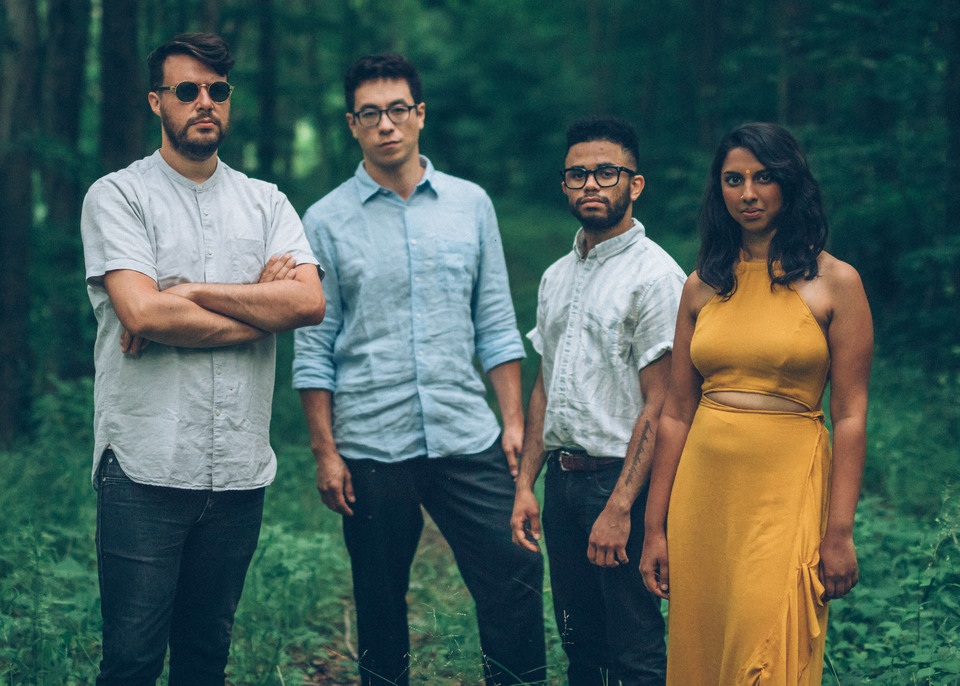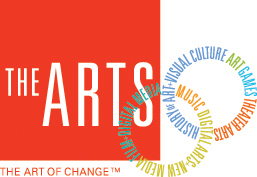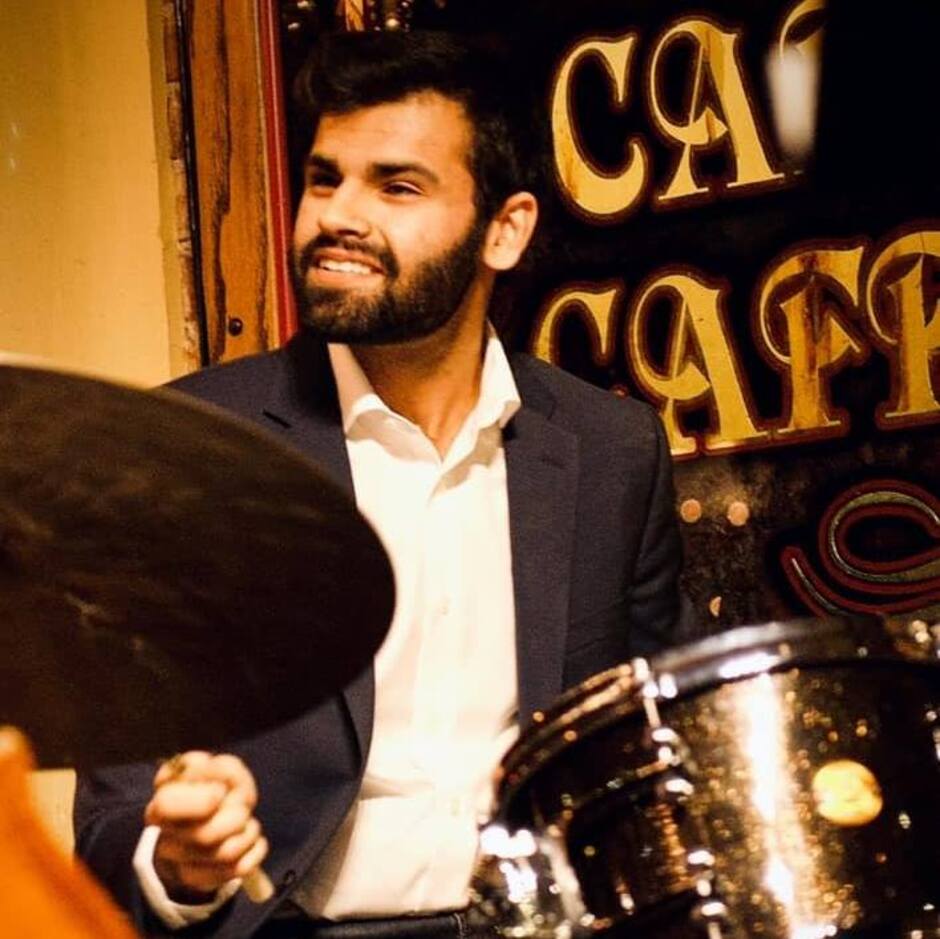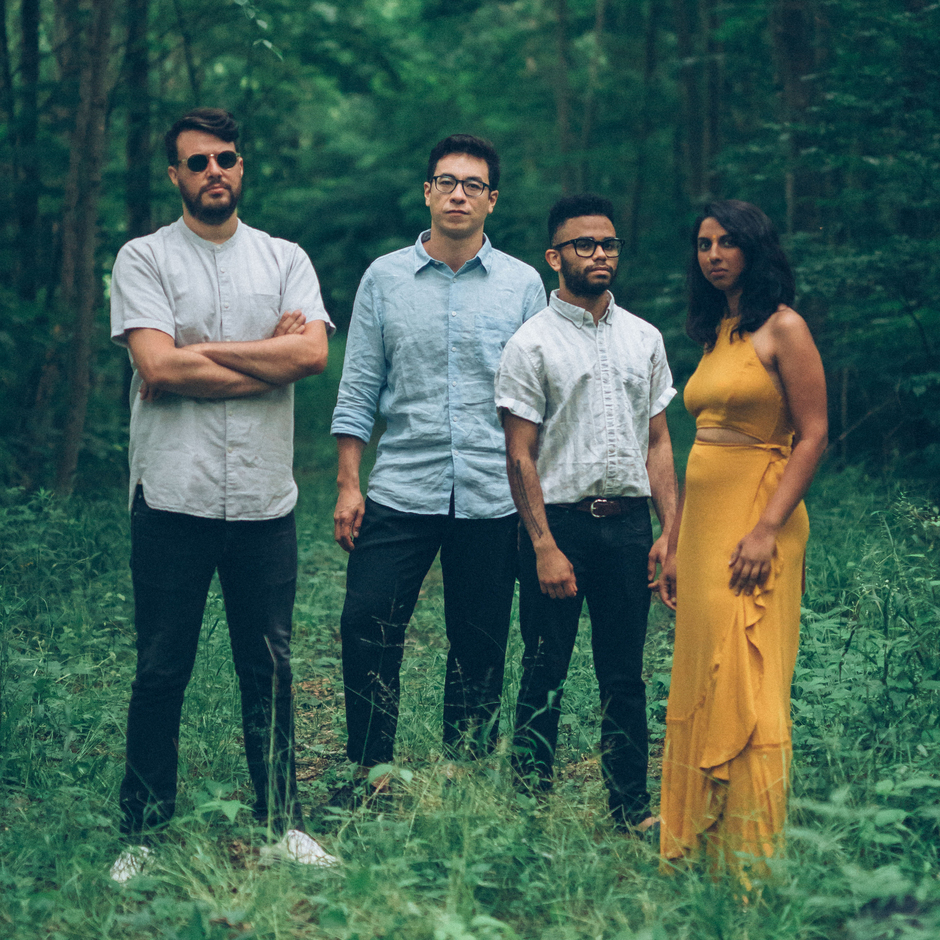
Amirtha Kidambi Elder Ones: From Untruth + Keshav Batish
Add to Calendar
$11 Members / $21 Adv / $25 Door
Indexical presents Elder Ones, a quartet led by vocalist, harmonium and synthesizer player, and composer Amirtha Kidambi. Kidambi fuses the ecstatic and revolutionary free jazz spirituality of John and Alice Coltrane’s later work with her own background in Carnatic and Western classical vocal techniques. Her quartet includes Max Jaffe on drums and his custom Sensory Percussion electronics, Matt Nelson on soprano sax, and Nick Dunston on bass, and is anchored in free jazz even as it pushes into new futurist realms.
Doors at 7pm; Q&A with scholar Eric Porter and Amirtha Kidambi at 7:15pm.
The second release by Amirtha Kidambi’s ensemble Elder Ones, From Untruth is comprised of four pieces grappling with issues of power, oppression, capitalism, colonialism, white supremacy, violence and the shifting nature of truth. This music means to give the listener momentary relief from the anxiety and pain caused by living in our current reality.
From Untruth builds upon the bedrock foundation of Kidambi’s previous compositional and conceptual work with Elder Ones, while forging uncharted territory. After a journey into wordless abstraction on Holy Science (Northern Spy, November 2016), Kidambi felt the urgency of the political moment required a direct and verbal call to action.
The instrumentation adds a layer of technology as a metaphor for modernity, with Kidambi on analog synthesizer and Max Jaffe’s drumming talents extended to electronic Sensory Percussion. The frenzied improvising of Matt Nelson on soprano sax and gravity of Nick Dunston on bass, anchor the music in the tradition of free jazz, while it pushes into new futurist realms. The aesthetic seamlessly reels from modal meditation, atonal expressionism, free improvisation and melodic invention, to unabashed bursts of punk rock energy.
This is Elder Ones at an unadulterated breaking point; on the edge of a knife that cuts.
“Sometimes the eye of a storm can draw upon the chaos around it, taking on its energy and consolidating it for use. Something like that is going on in Elder Ones, the quartet led by the vocalist and harmonium player Amirtha Kidambi. She creates drones on the harmonium — an old, air-powered keyboard — and coaxes her bandmates into ripping them apart. Then her voice funnels that energy out in a scorching beam. In its best moments, it’s like a mix of a Cuban sonero’s citrusy cry and a riot grrrl yowl.” - New York Times, Giovanni Russonello
This event is supported in part with funds from the Hasan Endowment for Indian Classical Music at UCSC.

Keshav Batish:
Keshav ki Todi

This piece is a realization of a Hindustani classical performance for a non-traditional ensemble in rāg Todi. It explores the basic movements of Alāp, or the expansion of a rāg, and bandish, which is typically a vocal composition. A vocalist is typically accompanied by a sarangi (bowed fiddle) and/or harmonium (reed organ), as well as tablā and tānpurā (stringed drone lute). Typically a sarangi or harmonium player copies the vocalist to create an echo effect, trailing behind the vocalist’s melodic lines, while the tablā player maintains the rhythmic cycle of the composition, and the tānpurā provides a constant sonic bed of the tonic note and a “color” note, that in summation, set the intonation of the notes of the rāg. Keshav ki Todi, first is a jab at the naming of a particular interpretation of rāg Todiby the court musician to Akhbar, Miya Tansen. The way Tansen played Todi became known as Miya ki Todi, literally translating as Tansen’s Todi. The composer’s possession of this rāg is only different in that the orchestration of its interpretation has changed. The hopes are the intention or affect of the rāg remain, while also incorporating the voice of soloists in the ensemble, mainly the Rhodes and Drum Set. The Double Bass and Viol de Gamba serve as a pseudo tānpurā and sarangi without the full constraints of the hierarchy of a ‘traditional’ ensemble—the double bass serves as a fluid yet steady drone, while the Viol de Gamba holds the composition, an orginally composed bandish, as a ground bass. As they lay the sonic foundation of the rāg, the Rhodes, tuned in a modified rāg-intonation scheme, joins with Drum Set to create a rāg-texture informed by jazz and baroque vocabulary.
Keshav Batish is a composer and multi-instrumentalist based out of Santa Cruz, California. His instruments of concentration are Sitar, Drum Set, and Tabla. He is a khandani musician and studies Hindustani classical music with his father Pt. Ashwin Batish. Keshav is also currently pursuing a doctorate in Cross-Cultural Musicology from UC Santa Cruz under the guidance of Dard Neuman. American music-wise, he studies drum set with George Marsh and composition with Larry Polansky. He frequently performs Hindustani classical and his interpretation of jazz throughout the Bay Area, featuring his own ensemble as well as playing within other groups as a side-person.
Amirtha Kidambi:
From Untruth

Sometimes the eye of a storm can draw upon the chaos around it, taking on its energy and consolidating it for use. Something like that is going on in Elder Ones, the quartet led by the vocalist and harmonium player Amirtha Kidambi. She creates drones on the harmonium — an old, air-powered keyboard — and coaxes her bandmates into ripping them apart. Then her voice funnels that energy out in a scorching beam. In its best moments, it’s like a mix of a Cuban sonero’s citrusy cry and a riot grrrl yowl. - New York Times, Giovanni Russonello
The forthcoming release From Untruth builds upon the bedrock foundation of Kidambi’s previous compositional and conceptual work with Elder Ones, while forging uncharted territory. After a journey into wordless abstraction on Holy Science, Kidambi felt the urgency of the political moment required a direct and verbal call to action. The lyric fragments in “Eat the Rich”, “Decolonize the Mind”, “Dance of the Subaltern” and “From Untruth” critique power structures of capitalism, racism, colonialism and fascism, distilling heavy post-colonial theory into concentrated visceral battle cries. The instrumentation adds a layer of technology as a metaphor for modernity, with Kidambi on analog synthesizer and Max Jaffe’s drumming talents extended to electronic Sensory Percussion. The frenzied improvising of Matt Nelson on soprano sax and gravity of Nick Dunston on bass, anchor the music in the tradition of free jazz, while it pushes into new futurist realms. The aesthetic seamlessly reels from modal meditation, atonal expressionism, free improvisation and melodic invention, to unabashed bursts of punk rock energy. This is Elder Ones at an unadulterated breaking point; on the edge of a knife that cuts.
Amirtha Kidambi "takes a holistic approach to singing, which can mean treating every element as unfixed: Words can be opened up, rendered nonspecific. Melody can be repeated and frozen and stuck in place. Markings of rhythm can become utterly abstract, freed from cadence." (New York Times).
Kidambi is the composer and bandleader of her quartet Elder Ones, with Matt Nelson, Max Jaffe and Nick Dunston and the leader of her vocal quartet Lines of Light, featuring Anaïs Maviel, Emilie Lesbros and Jean-Carla Rodea. Kidambi is also a regular collaborator of Lea Bertucci, in a voice and analog electronics duo, is a member of guitarist Mary Halvorson’s Code Girl, featured in various projects with composer and alto saxophonist Darius Jones, a longtime contributor of Charlie Looker’s early music inspired dark folk band Seaven Teares and a soloist in Pat Spadine's analog percussion and light ensemble Ashcan Orchestra. She has collaborated and performed with New York luminaries in the experimental and creative music community including Tyshawn Sorey, Matana Roberts, Ingrid Laubrock, Maria Grand, Brandon Lopez, Daniel Carter, Sam Newsome, Trevor Dunn, Ava Mendoza, Matteo Liberatore and veteran improviser William Parker.
Her debut as a bandleader was met with critical acclaim. As Ben Ratliff wrote in the New York Times, “the aggressive and sublime first album by the band Elder Ones, Holy Science, is a kind of gauge for how strong and flexible the scene of young musicians in New York’s improvised and experimental music world can be. At the center of it are drones and phonemes. The group’s leader, the composer and singer Amirtha Kidambi, holds forth behind a harmonium, the small keyboard instrument with hand-pumped bellows; it’s commonly used in bhajan, the Indian devotional-singing tradition that was central to her musical experience while growing up in a South Indian family.” Kidambi formally trained in classical music, singing works by experimental composers including Robert Ashley and Luigi Nono, but the pull of free jazz and Alice Coltrane drew her toward a different path. The influence of both Alice and John Coltrane is especially apparent, as is her work with composer and saxophonist Darius Jones, and her study of Carnatic music. The group’s follow-up album From Untruth will be released in March 2019, on Northern Spy Records.
As a performer and improviser, Kidambi has premiered works by pioneering composers including AACM founder and pianist Muhal Richard Abrams’, premiering his Dialogue Social Roulette in 2013, Robert Ashley’s CRASH at the Whitney Biennial in 2013, Darius Jones’ The Oversoul Manual at Carnegie Hall in 2014, electronic composer Ben Vida’s work Slipping Control for voice and electronics with Tyondai Braxton at the Borderline Festival in Athens, Greece in 2014 and William Parker’s Soul of Light in 2017. Recent recordings include William Parker’s Voices Fall From the Sky (2018), the debut recording of Mary Halvorson’s Code Girl (2018) and Ingrid Laubrock’s Contemporary Chaos Practices (2018). Kidambi has toured nationally and internationally including performances at Carnegie Hall, Newport Jazz Festival, Berlin Jazzfest, Jazz Jantar in Poland and Music Unlimited in Austria. She was a Summer 2018 Artist-in-Residence at Bucareli 69 in Mexico City, where she performed with several local artists including Mexico’s premiere free improvisation collective Generacion Espontanea. Kidambi has been commissioned by the Jerome Foundation, receiving the Emerging Artist Commission in 2014 and Artist-in-Residence in 2018, through Roulette in Brooklyn. She was also a resident artist at the Experimental Media and Performing Arts Center (EMPAC) in New York State, where Elder Ones recorded Holy Science.
Amirtha earned an M.A. in Ethnomusicology from Columbia University, an M.M. in Voice and Musicology at CUNY Brooklyn College and a B..A. in Voice from Loyola Marymount University. She currently serves on the faculty for the New School, teaching music history courses and heading a large scale curriculum development project. She has also served on the faculty at Brooklyn College.
Amirtha Kidambi Elder Ones: From Untruth + Keshav Batish
Add to Calendar
$11 Members / $21 Adv / $25 Door
